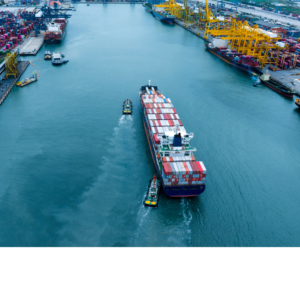
Regarding international shipping, businesses must choose between air and ocean freight forwarding. Each option has distinct advantages, depending on the shipment’s urgency, cost considerations, and logistical requirements. This article will help you understand the key differences and decide which method best suits your needs.
What Is Freight Forwarding?
Freight forwarding is the coordination and shipment of goods from one place to another using various transport modes, including air, ocean, and land. A freight forwarder manages logistics, ensuring cargo reaches its destination efficiently and cost-effectively.
ExFreight offers comprehensive freight forwarding services, allowing customers to obtain instant rates, book shipments, and track them digitally.
Air Freight Forwarding
Advantages of Air Freight
1. Speed: The fastest shipping mode, ideal for urgent shipments.
2. Reliability: Fewer delays and predictable transit times.
3. Security: There is a lower risk of theft and damage than ocean freight.
4. Reduced Warehousing Costs: Faster transit times reduce the need for inventory storage.
Disadvantages of Air Freight
1. High Cost: Air freight is significantly more expensive than ocean freight.
2. Weight and Size Restrictions: Airlines impose strict limitations on cargo weight and dimensions.
3. Environmental Impact: Air transport has a higher carbon footprint than ocean shipping.
Ocean Freight Forwarding
Advantages of Ocean Freight
1. Cost-Effective: Cheaper than air freight, especially for large shipments.
2. High Capacity: Suitable for oversized or heavy goods.
3. Eco-Friendly: Lower emissions per ton-mile compared to air freight.
Disadvantages of Ocean Freight
1. 
2. Risk of Delays: Port congestion, customs clearance, and weather conditions can cause delays.
3. Limited Tracking Visibility: While tracking has improved, ocean freight does not offer real-time updates like air freight.
Key Factors to Consider When Choosing Between Air and Ocean Freight
1. Urgency of Shipment
If delivery speed is critical (e.g., perishable goods, medical supplies, or high-value electronics), air freight is the best option.
2. Shipping Budget
Ocean freight is the preferred choice for cost-conscious businesses, especially for non-urgent shipments.
3. Cargo Type and Size
· Air Freight: Ideal for small, high-value goods.
· Ocean Freight: Suitable for bulk shipments, heavy machinery, and raw materials.
4. Environmental Considerations
Businesses aiming to reduce their carbon footprint should prioritize ocean freight over air transport.
5. Supply Chain Predictability
Companies with well-planned logistics schedules can benefit from ocean freight, while those needing just-in-time delivery may prefer air transport.
ExFreight: Your Digital Freight Forwarding Solution
ExFreight offers a fully digital freight forwarding platform that provides instant pricing, real-time tracking, and easy booking options. Whether you choose air or ocean freight, our system ensures a seamless shipping experience.
Services Offered by ExFreight:

Frequently Asked Questions (FAQs)
What are temporary imports or exports?
Temporary imports and exports involve moving goods across borders for a limited time, often for trade shows, repairs, or testing, without incurring complete customs duties.
What is included in ExFreight’s international freight services?
ExFreight provides door-to-door air and ocean shipping, customs clearance, cargo insurance, and real-time tracking. Customers can choose from multiple service levels based on their needs.
What is the maximum limit for air freight?
Under the Warsaw and Montreal Conventions, air freight shipments typically have a standard liability limit of $9.07 per pound (or $20 per kilogram). Additional insurance can be purchased for high-value goods.
Choosing between air and ocean freight forwarding depends on your shipment’s speed, budget, and logistics requirements. Air freight is best for urgent, high-value shipments, while ocean freight is more cost-effective for bulk and non-time-sensitive cargo.
For seamless, digital freight forwarding solutions, trust ExFreight to optimize your shipping needs with instant pricing, real-time tracking, and reliable logistics management.



Leave A Comment
You must be logged in to post a comment.